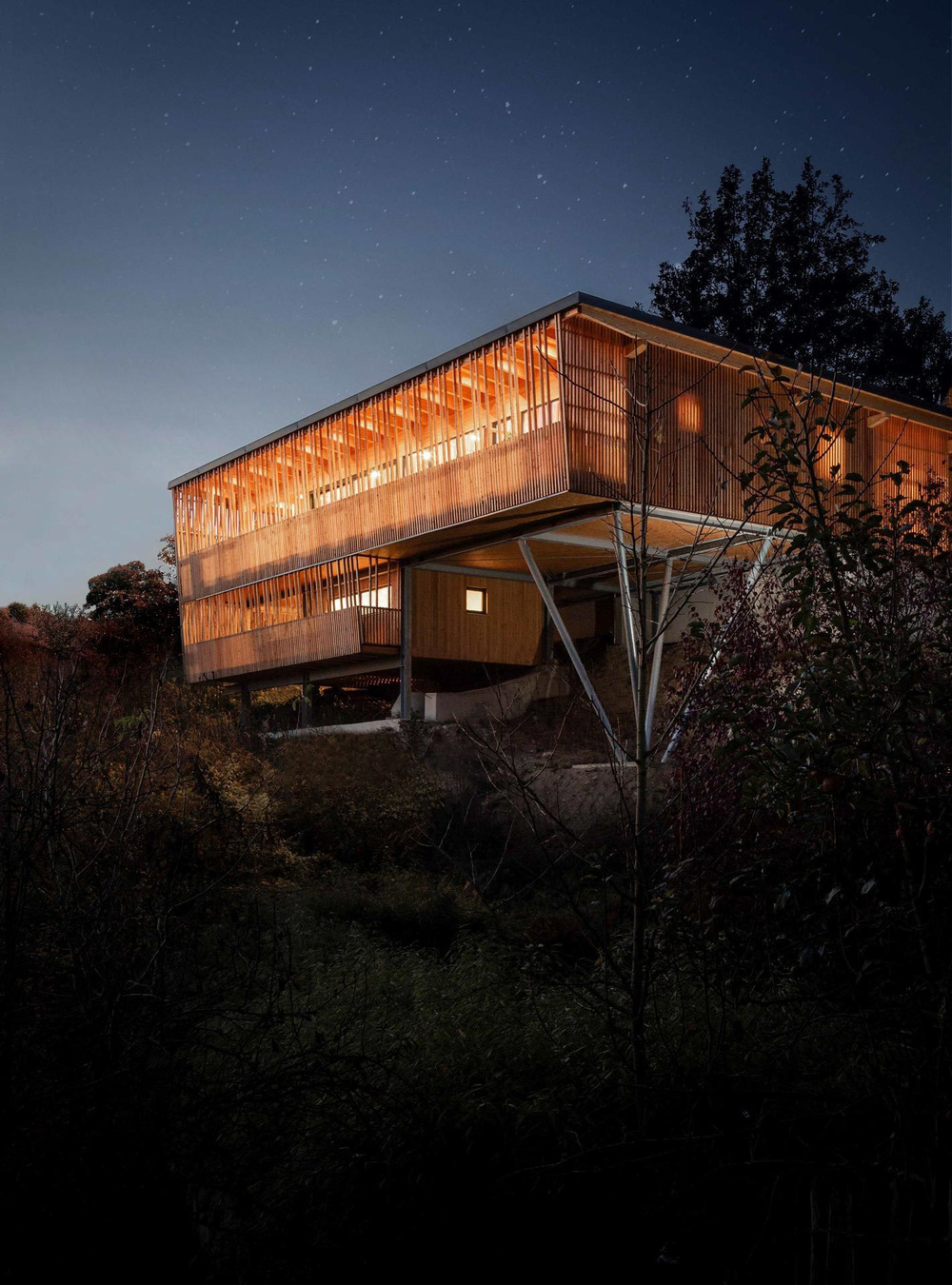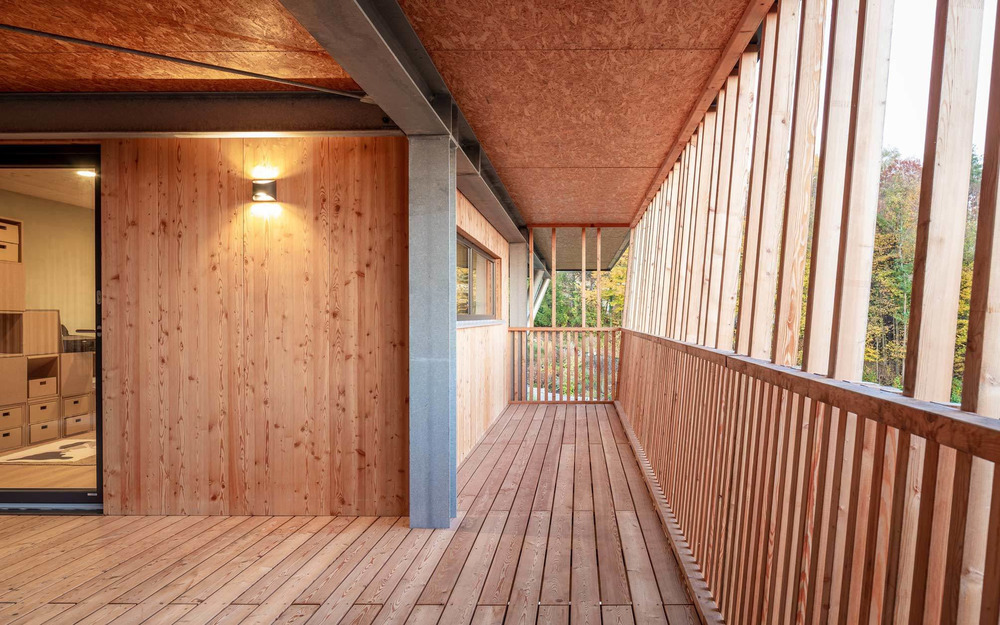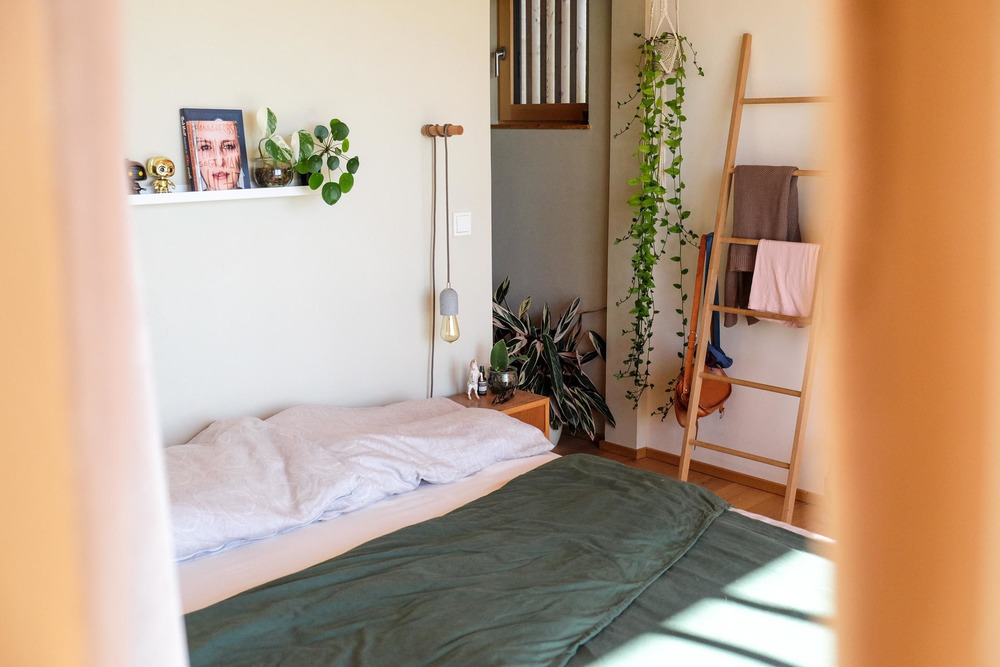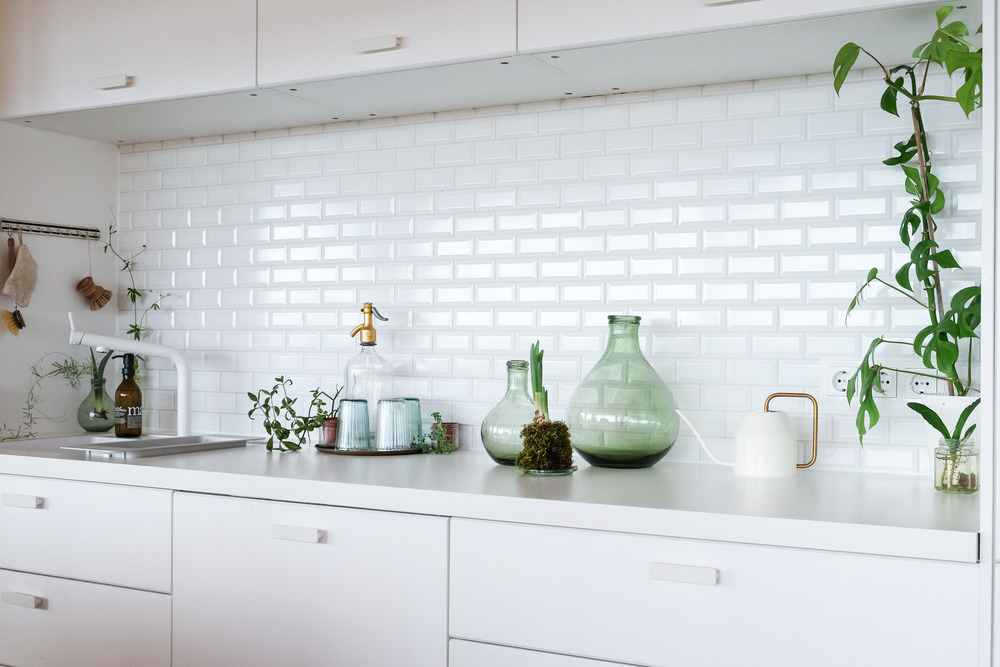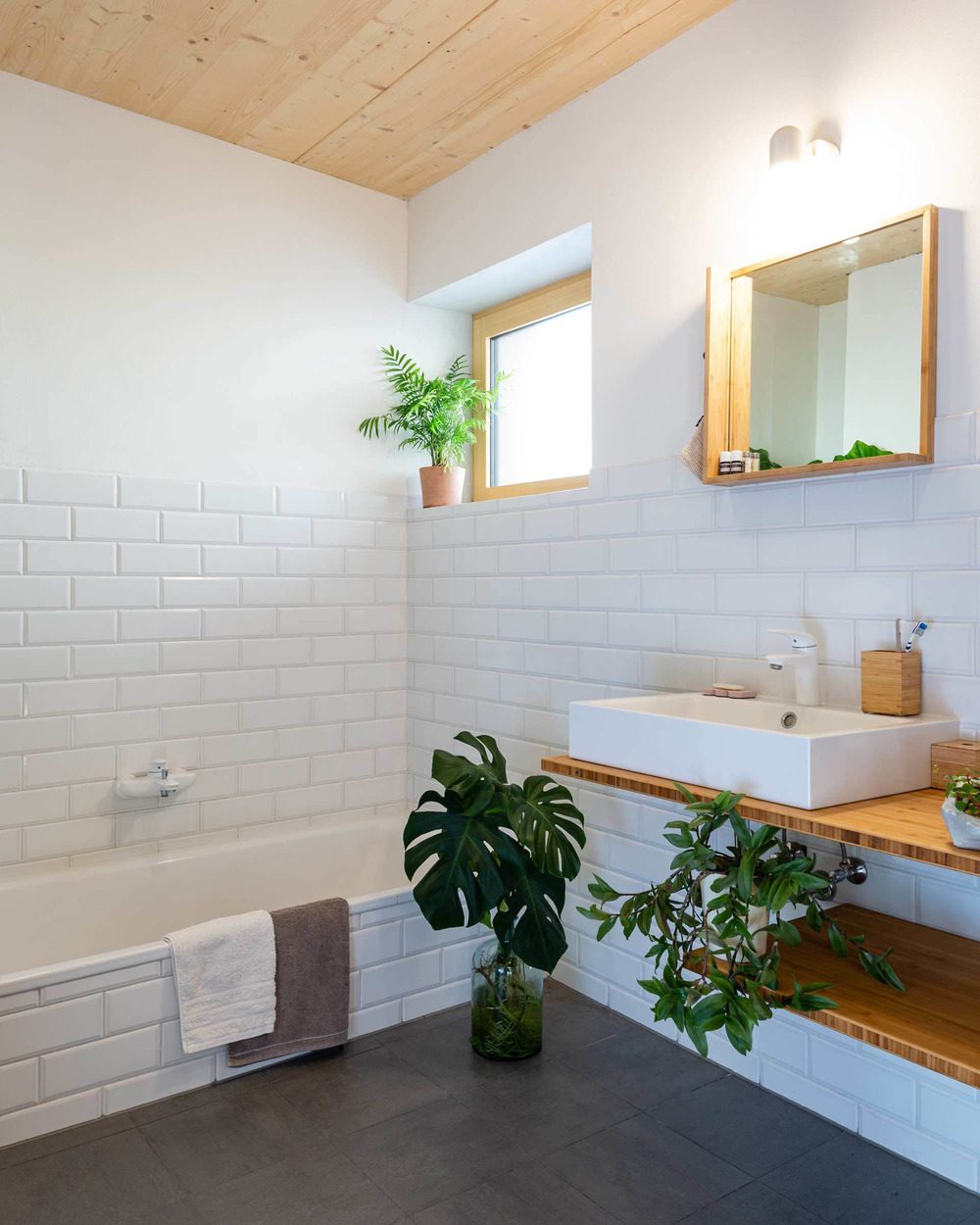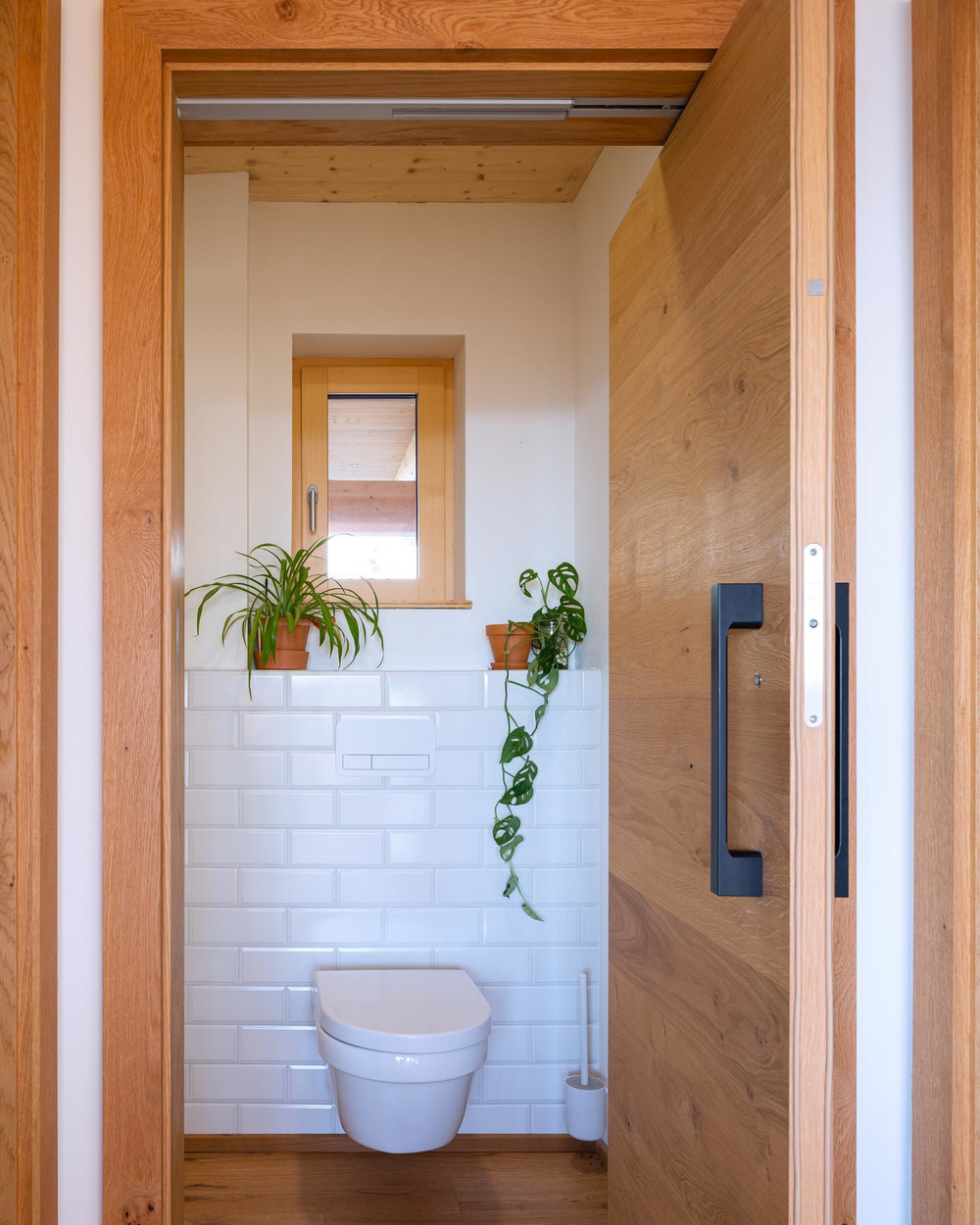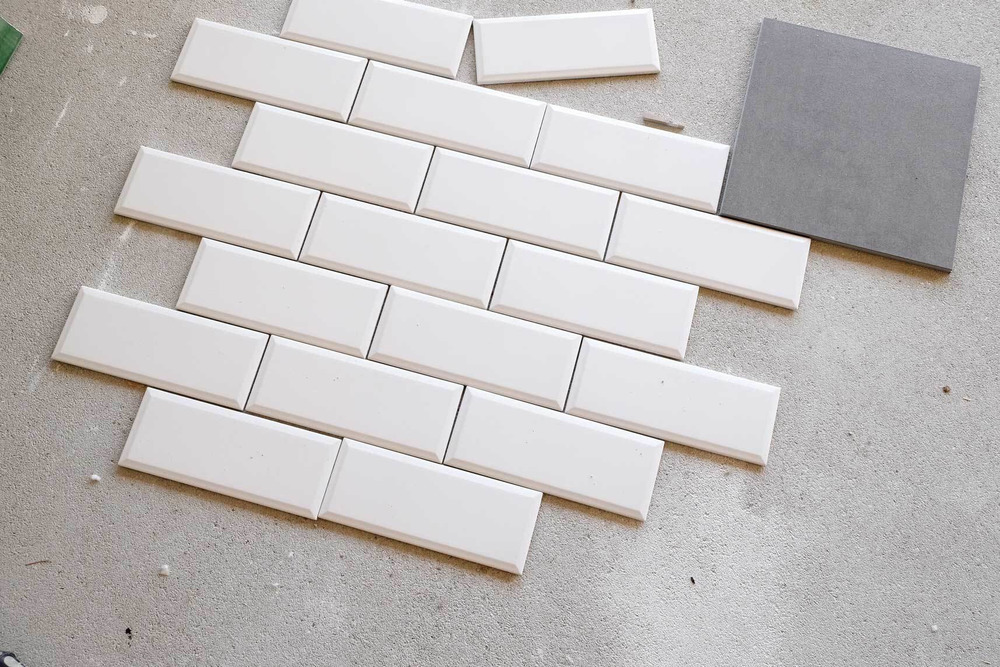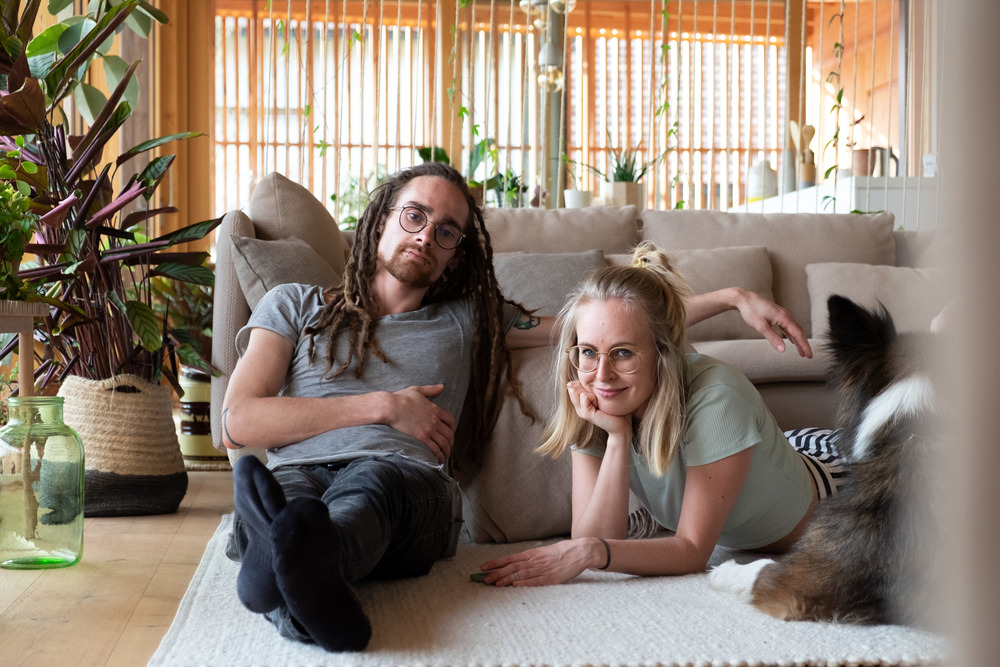Bloggers Andrea Hörndler & Hannes Wizany of Place to be built their DIY ecological dream house in Linz, Austria combining sustainability with design.
-text by the authors
Hand on heart: in the past, an eco-house was quickly associated with hippie flair. But those days are over. Today, the motto is: ecological building with design. One example is the case of Andrea Hörndler and Hannes Wizany from Austria, who report on their experiences in their blog, “Place to be”. They have concluded that ceramic tiles from Agrob Buchtal not only look good, but also make a direct contribution to ecological building and, with the innovative Hytect surface, ensure a healthy indoor climate.
“I believe that once you start thinking about your personal consumer behaviour, it’s hard to close your eyes. It starts with little things, like cosmetics or food, and extends to building a house. That’s also why we started asking ourselves how we actually want to live, what we really need, and how we can realize it in a sustainable manner”, Andrea Hörndler explains of the origins of her housing project.
After approximately two years of intensive searching, they found the perfect plot of land near Linz: engulfed in nature, yet not too far from the city.
Their declared goal: an ecological residential building no more than 100 square metres in size, which skillfully combines their demands with regard to sustainability and design.
Imposing architecture on stilts
On the steep hillside plot, the “eco-house”, built on stilts and largely of wood, catches the eye through its imposing architecture alone. In order to avoid sealing the ground, Hörndler and Wizany deliberately decided against building a basement. A support structure made of recycled steel carries the house and makes it look like a floating “living box”. The wood used comes from sustainable Austrian forestry, the insulation is made of straw blown in after the wheat harvest, and in the interior, building panels made of straw, clay slabs, and clay plaster provide a climate-regulating effect.
“Access to information on the subject of ecological building, or sustainable alternatives in the building industry in general, is extremely arduous”, sums up Hörndler. “We have therefore tried to document everything as well as possible, and to provide insights into our house via our blog.”
For example, the fact that ceramic tiles not only look good but also directly contribute to ecological building is one of the experiences which the two home builders are happy to share with their followers.
Sustainable floor and wall tiles
“Of course, we were guided by the design when choosing the tiles, which is also how we came across the District series of Agrob Buchtal. But we also didn’t want to give up our claim to sustainability. From our point of view, it is very difficult to design a bathroom ecologically – if only because it is not possible to do without waterproofing”, says Hörndler.
Ceramic tiles, on the other hand, meet the ecological criteria, because they are made from natural raw materials with clay as the main component.
Additionally, in the sum of their properties, ceramic tiles are one of the most sustainable floor and wall coverings of all. Almost all Agrob Buchtal tiles come with the innovative Hytect surface, providing special additional benefits: an antibacterial effect without chemicals, a neutralizer of unpleasant odours and air pollutants, and are extremely easy to clean.
Ceramic tiles which can do more
The effect of Hytect is based on the principle of photocatalysis. For this purpose, titanium dioxide is durably baked into the glaze of the ceramic tiles as a “catalyst” which, when exposed to light, effects a reaction between light, oxygen, and air humidity. In this way, active oxygen is formed which, on the one hand, eliminates unpleasant odours and air pollutants including formaldehyde, tobacco, kitchen fumes, and typical WC odours. On the other hand, the active oxygen decomposes and inhibits the growth of micro-organisms such as bacteria, mould, algae, moss, and germs without chemical substances. Furthermore, the photocatalytic effect of Hytect does not wear off, but rather is activated again and again by light alone. Normal room lighting is sufficient for this purpose.
The ceramic tiles provided with Hytect coating are also hydrophilic – i.e. water-friendly – and are therefore particularly easy to clean. Instead of forming drops, the water spreads evenly as a thin, flat film on the tile. The advantage: dirt is washed down by the water film and can then be easily removed. Hytect thus significantly reduces the use of cleaning agents and protects the environment.
Trendy metro tiles
The District series of Agrob Buchtal convinced Andrea Hörndler and Wizany with its glossy glaze, which is cleverly accentuated by the bevelled edges on all sides. The collection is inspired by the typical tile claddings of metro stations in big cities like Paris or London. It was used in 10 x 25 centimetres format on the walls in the bathroom and WC, and in 5 x 10 centimetres format in the kitchen. Grey floor tiles from the Agrob Buchtal collection help to create a harmonious overall picture in this combination. And, of course, they also have the innovative Hytect surface for healthy indoor air and better living quality.
Facts & Credits
Project title Ourplacetobe
Typology Architecture, Green Design
Location Linz, Austria
Project completion date 2019
Design Andrea Hörndler & Hannes Wizany | ourplacetobe
Photography Lumina Kreativagentur, ourplacetobe
READ ALSO: Motodynamics headquarters in Athens | by Lowfat architecture+interiors
